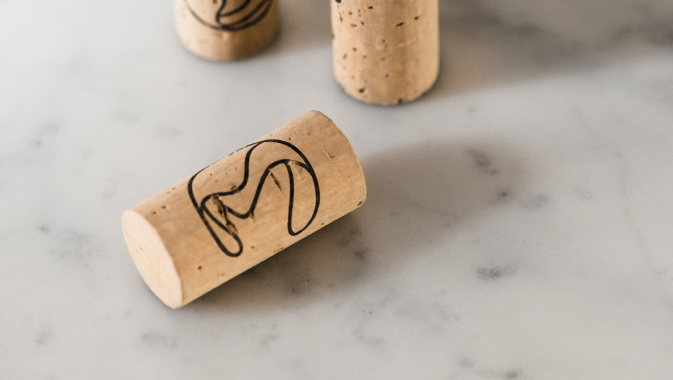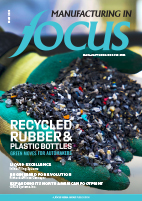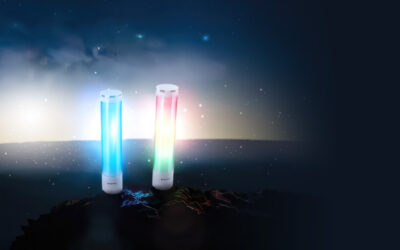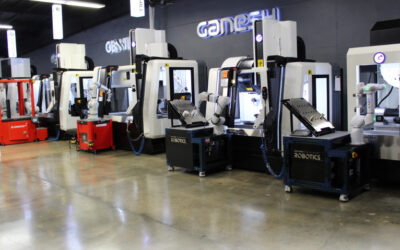Wine has been celebrated for thousands of years; it is a staple in restaurants and homes and at weddings, certain religious ceremonies and special events. Often ignored in any discussion about wine, however, is the importance of closures – the industry term for the stopper that seals a bottle.
Vinventions, a global closures provider to the wine market, sells a wide range of stoppers from natural corks to screw caps and synthetic closures. As the second-largest supplier of wine closures in the world, Vinventions continues to grow and introduce new, innovative products, most of which are designed to seal bottles and to properly preserve wine.
“We aspire to provide closures to the wine business that offer improved elements as they relate to performance, design or sustainability. What we’re really trying to do is provide closures that other companies can’t. We’re not trying to be a distributor of products that other companies also distribute,” explains Katherine Glasgow, Vice President of Innovation Execution at Vinventions.
So the industry needs something new and unique. Natural corks, while they have a very long history of use, sometimes become tainted due to a chemical compound called TCA (often referred to as “cork taint”), which can give the wine a musty, “wet dog” smell. A tainted cork can ruin the taste of the wine, which is bad for the consumer and wasteful. Because they are a product from nature and not engineered to be precise, natural corks can also allow inconsistent amounts of oxygen levels into the bottle as wine ages, resulting in bottle-to-bottle variation even within the same batch of wine (meaning you could open two of the same bottles with two completely different flavor profiles and aromas – and you might like one bottle but not the other).
To prevent such scenarios, Vinventions offers five brands devoted to cutting-edge wine closures as well as two service brands. Wine closure brands include Nomacorc, Ohlinger, Vintop, Alplast and Syntek, while the service brands are called Wine Quality Solutions and Wine Marketing Solutions.
To make these products, Vinventions operates seven facilities, located in Belgium, South Africa, China, the United States, France, Germany and Argentina, and has more than 550 employees around the world. With European headquarters in Thimister-Clermont, Belgium and U.S. headquarters in Zebulon, North Carolina, Vinventions had a 13 percent share in the worldwide wine closure market in 2018. Last year, Vinventions products also protected an estimated 2.8 billion bottles.
The company sells to over 8,000 customers in more than 50 countries. This client-base is primarily made up of wineries, although individual consumers who want to make wine at home can order Vinventions products through Amazon.
Vinventions’ global presence underlines the importance the company puts on customer proximity. Customer proximity, in fact, is one of the six guiding principles the organization follows; the others are innovation, local entrepreneurship, sustainability, open teamwork and long-term responsibility.
“One of our strengths is that we are in every area that wineries are in. With our 11 office and production facility locations, we are close to the customers. We call that a key to our success,” says Glasgow.
Innovation is another company tenet that drives the company forward. “We are really committed to offer closures to the market that no one else can make. Innovation is in our DNA. It’s a core competency,” states Glasgow.
Indeed, innovation was on the agenda right from the start. A new business, Vinventions was founded in 2015. The company was founded by the same founders of an innovative closures company called Nomacorc, which they immediately acquired. Founded in 1999, Nomacorc itself was a spin-off of a sister company called Nomaco that manufactured pipe insulation and other products. In 2019, Nomacorc celebrated its 20th anniversary and Nomaco celebrated its 40th anniversary.
The move to acquire Nomacorc was a wise one: it was an award-winning business with a reputation for creating excellent synthetic wine closures. In 2013, Nomacorc won an Innovation Challenge New Technology Award at the SIMEI-ENOVITIS trade show for its Select Bio Series closures. It was the “world’s first zero carbon footprint wine closure,” according to a November 7, 2013 article posted at industry website, www.winebusiness.com. These Select Bio closures are made using biopolymers from sugarcane and offer significantly lower carbon footprints than other closures.
Nomacorc picked up a 2014 Green Award for “Best Green Launch of the Year” as hosted by The Drinks Business, a trade journal and a year later won a WINnovation award (as hosted by the Wine Industry Network). The latter honour was bestowed on the Wine Quality Solutions brand for its NomaSense PolyScan B200 analyzer, “the first analyzer that allows measurement of all oxidizable components of a wine, particularly polyphenols,” according to www.winebusiness.com.
So, Vinventions began selling Nomacorc’s products, and soon, the company was looking for other companies to purchase to expand its product line.
“The idea was, why don’t we make some other acquisitions and take some things we’ve learned with Nomacorc, like how to control oxygen ingress, how to incorporate sustainability, how to incorporate different elements of design and extend it to natural closures and screwcaps? So we started making acquisitions around those other areas. The idea was that we could provide a broad portfolio of closures and not just be focused on one type,” says Glasgow.
Within the space of a few years, Vinventions purchased the Ohlinger Group (famous for its natural corks), Syntek (which makes petrochemical-based synthetic closures) and formed a joint-venture with Italian screwcap firm Alplast. Screwcaps are common on bottles of olive oil, as well as wine. Under the terms of the joint-venture, Vinventions offers Alplast screw caps to the winery market.
These, and other acquisitions, helped position Vinventions as a global leader in the wine closures market, and the company has since introduced several revolutionary products. Expanding on previous products, the Nomacorc brand now offers a Green Line of PlantCorc closures made using sugarcane polymers. PlantCorc closures are recyclable, have minimal impact on the environment, can preserve wine for up to a quarter-century and have proven hugely popular.
Last year, Vinventions unveiled another potential industry game-changer in the form of SÜBR, “the world’s first glue-free, micro-agglomerated closure. SÜBR is really the first product to be launched from Ohlinger, the natural cork line, since we started Vinventions,” reports Glasgow.
The sustainable and recyclable SÜBR closure blends natural cork with a biodegradable plant-based adhesive. Last year, the SÜBR F7 cork garnered a Special Mention in the 21st Innovation Trophies category at Vinitech-Sifel, an international wine trade show in France.
Through research, experimentation and consultations with wine institutes, Vinventions has developed an expertise in oxygen management with inner seal closures. Oxidation, of course, is a key consideration when making wine. The company has used its expertise in oxygen management to develop processes that allow them to fine-tune the permeability of the company’s closures.
“A wine is different after you age it for several years and oxygen is very important to that process. If you give the wine a lot of oxygen or a little oxygen, it will develop differently. When you have a natural product, you don’t know from one cork to the next exactly what that rate of oxygen transfer will be. When you have an engineered product, however, you can define it and you can control it,” says Glasgow.
The company’s Wine Quality Solutions brand offers a range of analyzers and other equipment to measure wine characteristics such as oxygen level, carbon dioxide, color, polyphenols, etc.
“As we provided closures that had different levels of permeability, we also learned how important it is to control oxygen in the winemaking process, during bottling and aging. To help customers, we developed different types of analytical equipment,” says Glasgow.
While always interested in introducing new products and services, Vinventions is intent on retaining its central mission, which is to provide products for the wine industry, and to do it better than anyone else.
“The focus is on wine. Now and then we consider whether to get into other areas but right now our focus is just on wine,” states Glasgow.
To make sure the Vinventions message continues to get out, the company follows a promotional strategy involving ads in trade journals, a website and social media profiles and sponsorships. The company sponsors industry events and wine-tasting shows, for example.
And we can expect some major developments at Vinventions in the near future; along with Unilever and the Walki Group, Vinventions has partnered with Saudi Arabian chemicals company, Sabic, on an exciting venture involving used plastic waste.
“Sabic is building a plant to take plastic back from the environment, post-consumer use, and put it through a chemical recycling process to create new material,” explains Glasgow. “We’re working together to determine how we’re going to use this material. There are so many options.”
The Sabic project is an eco-friendly initiative given that the feedstock involved “is derived from low-quality mixed plastic waste that would otherwise be incinerated or sent to a landfill,” explains a January 28, 2019 article in Plastics Today magazine.
The Sabic partnership reflects Vinventions’ desire to remain innovative and its commitment to sustainability, and this focus on sustainability is applied to both the environment and to the company itself. In the business world, being sustainable involves taking steps to ensure a firm’s long-term success.
To this end, Vinventions remains “in constant contact with suppliers, to keep an eye out for what’s available and new, to see if it can be incorporated into our products,” states Glasgow.
In similar fashion, Vinventions intends to launch several new products in the near future. Glasgow is confident that Vinventions will be delivering more new products across all of its brands. “I think anything we’re going to be launching is going to have a very strong foundation in sustainability. That’s something that’s becoming more and more important,” says Glasgow.













